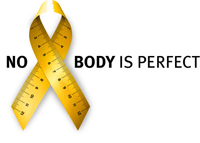Do you have an eating disorder?
Do you have an eating disorder?

You weigh yourself constantly and exercise compulsively. You don’t eat even if you’re hungry or do eat simply to feel good.
If any of the above sounds like you, you may be among an estimated 10 million American women and one million American men who suffers from an eating disorder.
As part of National Eating Disorders Awareness Week Feb. 20-26, Rowan University held a screening for students who may have an eating disorder or may be developing one.
Julie Mallory Church, a counselor at Rowan’s Counseling & Psychological Services Center in Savitz Hall, said, “if you, your friends or family are concerned you have an eating disorder, help is available – for free and on-campus.
“Eating disorders are extremely serious,” Church said. “Anorexia nervosa accounts for .3 of one percent of all mental illnesses but has the highest mortality rate of any mental illness.”
According to the National Eating Disorders Association, the mortality rate for girls and women 15 to 24 years old who suffer from anorexia is twelve times higher than all other causes of death. In fact, according to NEDA, five to 20 percent of all people with anorexia die from it.
Church said anorexia, a condition in which sufferers literally starve themselves to death, is characterized by obsession with becoming fat no matter how much weight is lost. Anorexics are often cold even if it’s warm outside and dress in baggy layers – both to stay warm and to hide the excess weight they imagine they’re carrying.
But Church said the immediate danger of anorexia is that it may lead to dehydration, malnutrition and electrolyte imbalance and can lead to cardiac arrest, stroke and death.
Sufferers of bulimia, a related condition, tend to binge eat but then purge their systems by vomiting or through diuretics, laxatives or other means.
“The worst is a combination of anorexia and bulimia,” Church said. “In that case, a person might already be malnourished combined with using laxatives, diuretics or vomiting.”
She said anorexia, bulimia and binge eating disorder are all related to body dissatisfaction and issues of self-esteem and all may be addressed through counseling.
Help at hand
Rowan’s Counseling Center has five full-time counselors who provide both individual and group therapy.
Church said emotional issues, which are sometimes compounded by the pressures of college, can trigger or exacerbate eating disorders.
“Difficulty in dealing with intense emotions often precedes the development of a disorder,” Church said. “A big problem for people with eating disorders is knowing what they’re feeling and knowing how to cope with their feelings.”
Leslie Spencer, a Rowan professor of health and exercise science, said another area of concern is a pattern of obsessive-compulsive eating and over-exercising.
“Some people are so committed to following the recommended dietary guidelines that they’re obsessive about every bite of food or exercising even when they’re sick or injured,” Dr. Spencer said.
She said obsessive dieting and exercising can lead to anorexia or bulimia but, even if it doesn’t, is dangerous in its own right. Women who over-train run the risk of developing female athlete triad, a phenomenon in which they lose too much weight, lose so much body fat that they stop menstruating, and lose bone density.
“For both men and women, overtraining can lead to injuries that can become chronic and limit you potentially for the rest of your life,” Dr. Spencer said.
While determining what constitutes over-training can be subjective, danger signs are: exercising so much that you miss school or work; an inability to sleep at night because you’ve done too much during the day; and feeling undue anxiety about the amount of exercise you’re getting.
“If a person is sick or injured but can’t give themselves a break, that’s a problem,” Dr. Spencer said.
If you think you have an eating disorder or an unhealthy compulsion to exercise, contact the Rowan University Counseling Center in Savitz Hall at 856-256-4222.
For more information about eating disorders, visit the National Eating Disorders Association’s home page.